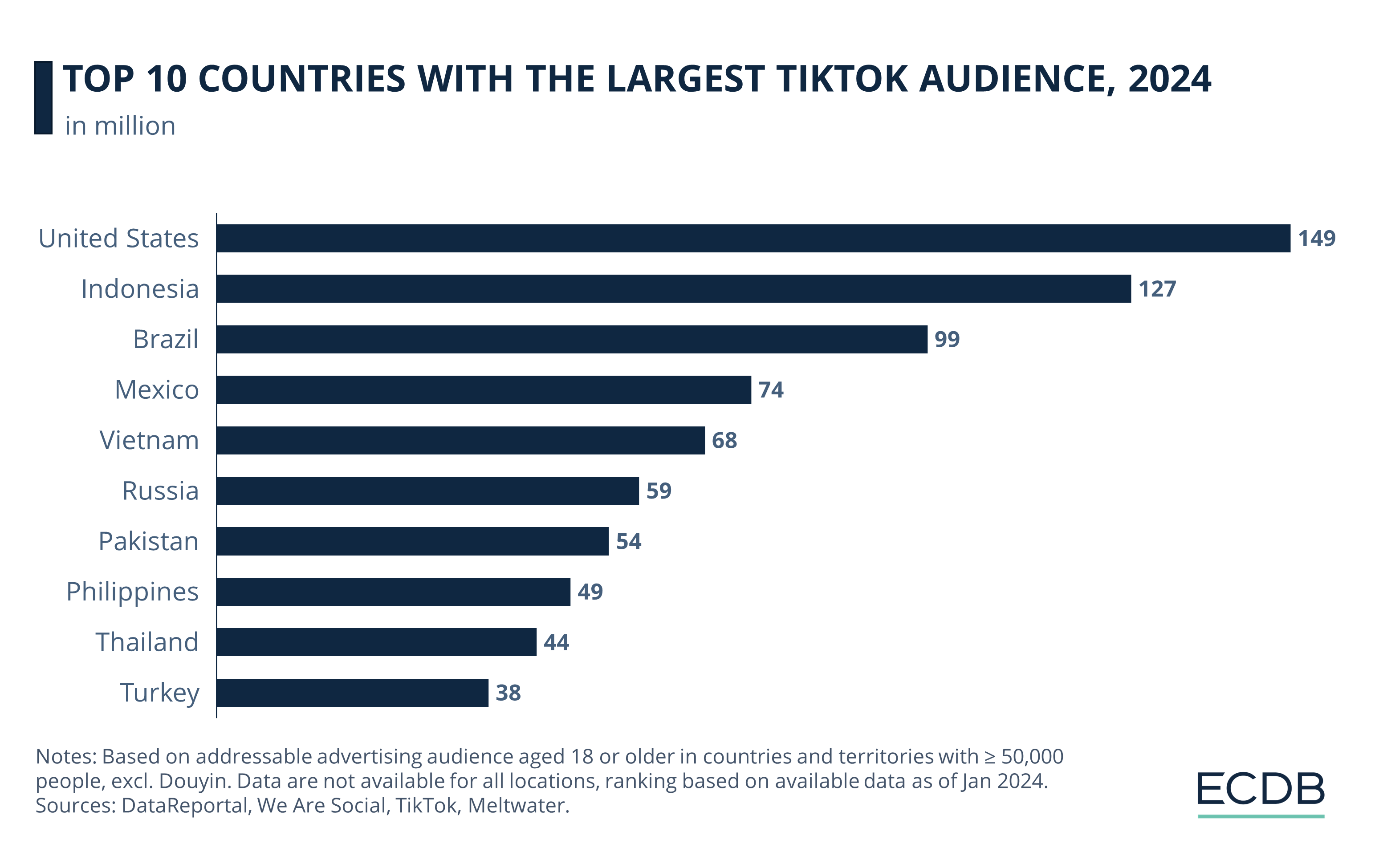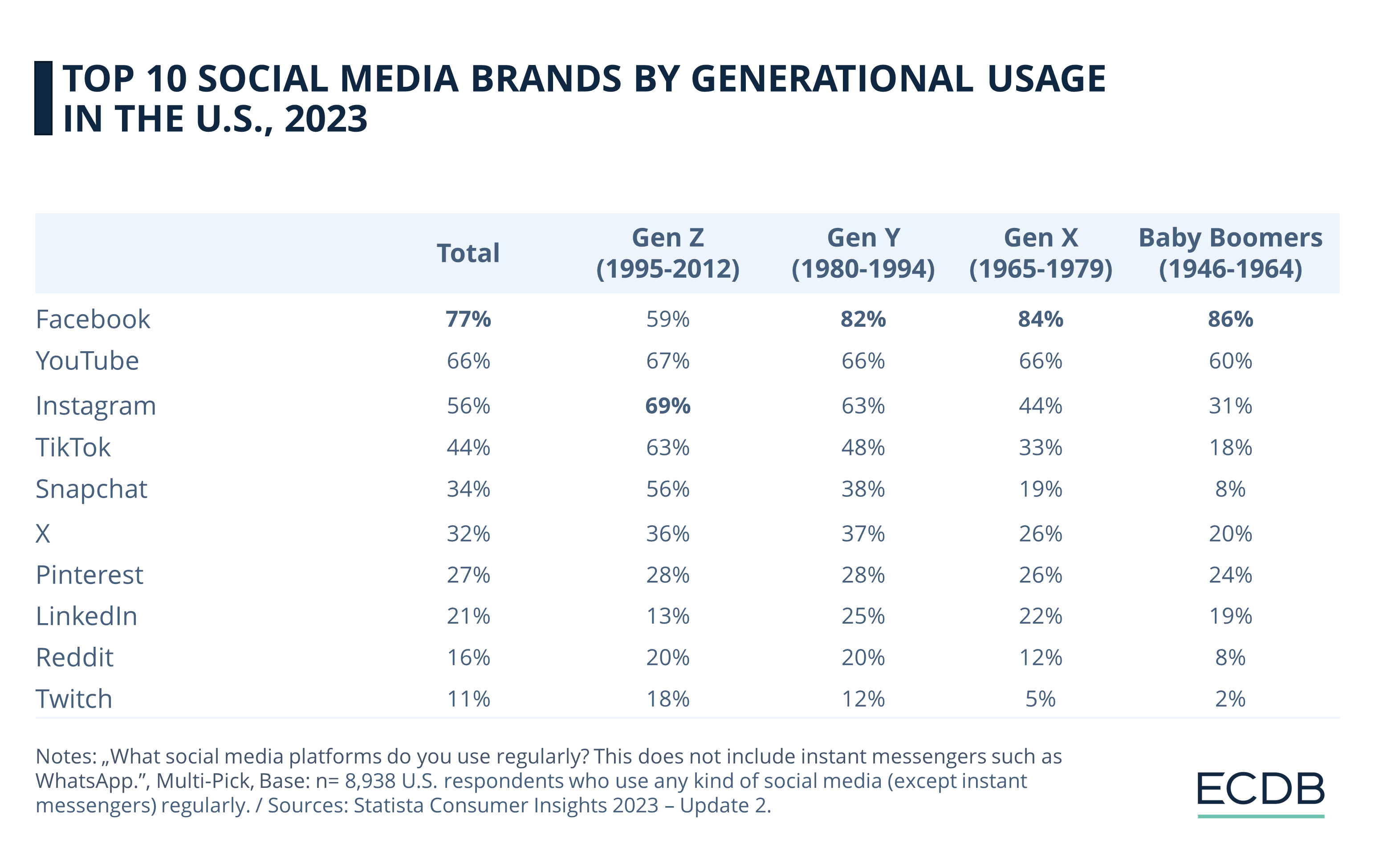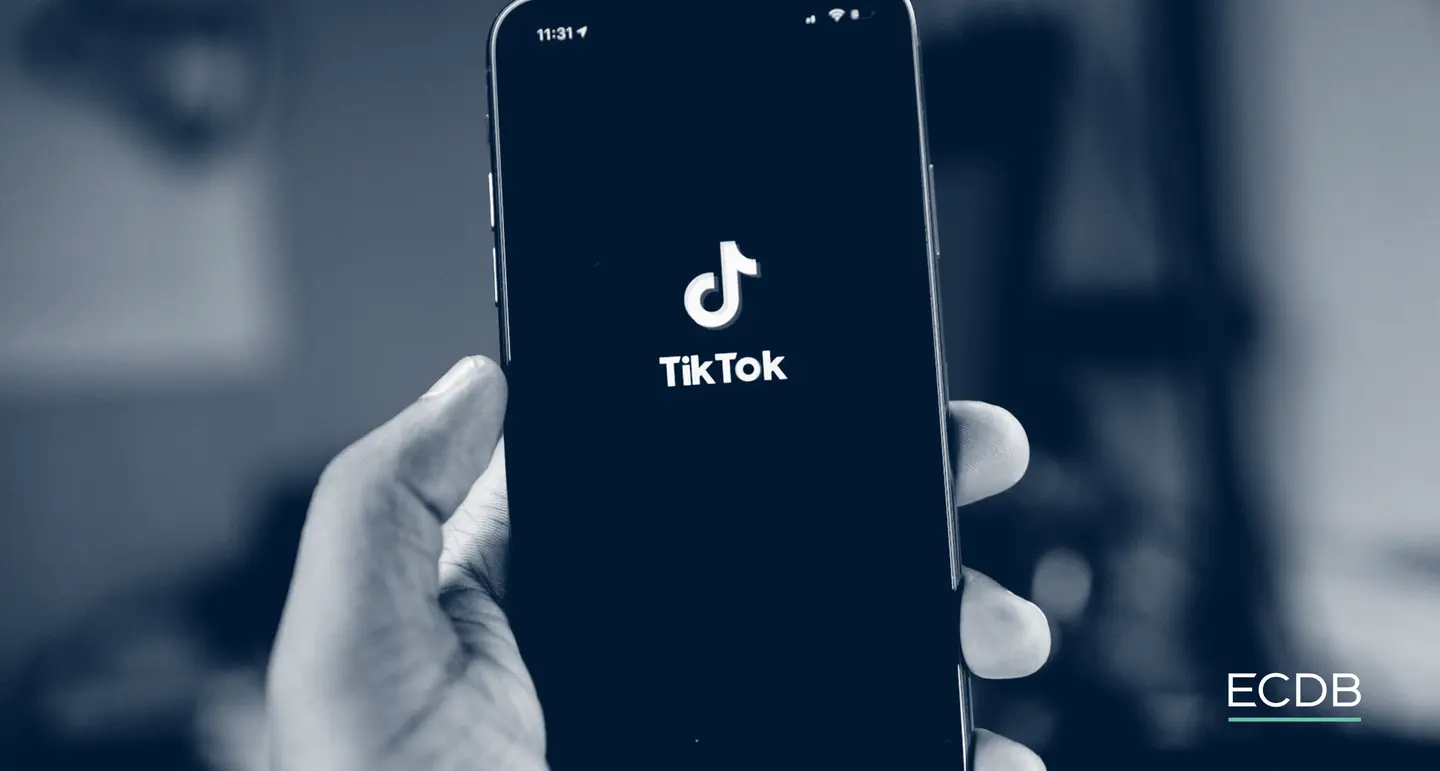eCommerce: Social Commerce
TikTok Ban in the United States: How Will This Impact Social Commerce?
TikTok might be gone from the U.S. in the next years. How would this impact the American social commerce market and who would fill the gap?
Article by Cihan Uzunoglu | April 29, 2024Download
Coming soon
Share

TikTok Ban in the United States: Key Insights
Market Shifts: The U.S. could see significant changes in its US$75 billion social commerce market if TikTok is banned, driving innovation and growth in competing platforms like Instagram, Snapchat, and Pinterest.
Platform Benefits: Should TikTok be banned or sold, platforms such as Instagram and Facebook, as well as newer players such as Flip, would likely benefit substantially, potentially attracting a large share of TikTok's user base and advertising revenue.
Creator Impact: TikTok's potential U.S. ban could disrupt its pivotal role in the creator economy; however, platforms like Instagram Reels and YouTube Shorts are ready to adopt and modify TikTok's social commerce and content strategies.
As an addition to the “Protecting Americans’ Data From Foreign Adversaries Act of 2024”, president Joe Biden recently signed a bill requiring TikTok's parent company, ByteDance, to sell its stake within a year or face a U.S. ban.
Selling TikTok, which has more than 150 million users in the U.S., is complex due to Chinese government restrictions on exporting its key algorithm and the need for approval, making the app less attractive without its algorithm. The app's high valuation, up to US$150 billion, further complicates finding a suitable U.S. buyer.
The Chinese platform is one of the largest social media platforms where U.S. consumers shop from. What happens if TikTok disappears from the U.S. social commerce market?
Impact on Social Commerce in the U.S.
Despite having a relatively low share of consumers using social commerce, the U.S. is a major market for social commerce, having generated US$75 billion last year. With the largest TikTok audience of nearly 150 million as of January 2024, the potential ban of the social media platform in the U.S. would certainly impact the country’s social commerce market in various ways.
In 2020, India banned TikTok, stripping ByteDance of a major market, citing data transmission concerns. Other nations and bodies, including the UK, Australia, Canada, the EU, France, New Zealand, and Taiwan, have also restricted TikTok on official devices due to security threats.
TikTok has been at the forefront of integrating social media with eCommerce, creating a new paradigm where the shopping experience is deeply intertwined with entertainment and social interaction. This has pushed other platforms to innovate similarly.

Should TikTok be banned or significantly altered, other social media platforms would likely vie to capture TikTok’s market share. Platforms like Instagram, Snapchat, and Pinterest could see increased investments in their eCommerce capabilities as they aim to attract TikTok’s user base. This could lead to a burst of growth and innovation among these platforms as they compete to prevail in social commerce.
Switch to Other Platforms
There is also the question of which platforms in the U.S. would benefit from TikTok disappearing from the landscape.
A survey by financial services group Wedbush indicates that around 60% of TikTok users would likely switch to Instagram or Facebook if TikTok were sold, and 19% would move to YouTube.
Similarly, analysts from Bernstein suggest that Meta, the parent company of Instagram and Facebook, could capture up to 60% of TikTok's U.S. advertising revenue in such a scenario, with YouTube potentially gaining 25%. Snapchat is also expected to see benefits, according to their analysis.
Impact on Creator Economy
TikTok has played a crucial role in the growth of the creator economy, offering millions of creators opportunities to monetize their content directly through innovative social commerce features.
Although the platform's potential U.S. ban could cause disruptions in this model, there will be platforms stepping in to fill the gap. Seeing how big social media names have already been adopting the short-video format in recent years, following the TikTok model for social media platforms in the U.S. will not be too difficult. Digital creators will still have platforms to make their voices heard or sell their products.

It is also important to keep in mind that the possibility of a ban wouldn't immediately cut off access to TikTok for U.S. creators, but it would likely propel them towards rapid diversification of their online presence. Many creators, if they haven't already, will start to focus more on Instagram Reels and YouTube Shorts, attempting to replicate their TikTok success by syndicating their content across these platforms.
Rising Stars: New Social Commerce Platforms
As the social commerce dynamics shift with the potential exit of TikTok from the U.S. market, several new and emerging platforms are positioning themselves as viable alternatives for social commerce.
One such platform is Flip, which offers a unique blend of video-based shopping experiences, enabling users to discover products through influencer videos and instantly make purchases. Another contender is Verishop, which integrates social shopping features directly into its app, promoting user interaction and influencer collaborations.
Additionally, platforms like LTK (formerly known as LIKEtoKNOW.it) have been refining their focus on direct-from-influencer shopping links, which could see increased popularity among users seeking alternatives to TikTok's model.

TikTok Ban in the United States:
Closing Thoughts
If TikTok is banned in the U.S., it signals once again that no company is immune to regulatory actions, potentially prompting a shift towards more diversified social commerce environments to reduce reliance on any single platform.
This move could reshape future U.S. policies on foreign-owned tech companies, leading to stricter regulations and a reevaluation of their operations in U.S. markets, which could influence sectors beyond social commerce.
The scenario underscores the volatility of digital platforms that integrate global tech, commerce, and politics. The outcomes of this situation could set important precedents for digital commerce and international tech relations.
Sources: NBCNews, NPR, Variety, VML, Statista, DataReportal, The New York Times, ECDB

Click here for
more relevant insights from
our partner Mastercard.
Related insights
Deep Dive
The Global B2B eCommerce Market: Why It Is Beneficial to Sell to Other Businesses
The Global B2B eCommerce Market: Why It Is Beneficial to Sell to Other Businesses
Deep Dive
eCommerce in Indonesia: Revenues Projected to Cross US$100 Billion in 2025
eCommerce in Indonesia: Revenues Projected to Cross US$100 Billion in 2025
Deep Dive
Top 10 Online Shopping Sites in the USA: Amazon, Walmart, Apple
Top 10 Online Shopping Sites in the USA: Amazon, Walmart, Apple
Deep Dive
eCommerce Market in China: A Maturing Market & Unsustainable Price Wars
eCommerce Market in China: A Maturing Market & Unsustainable Price Wars
Deep Dive
Otto: Can the German Retail Company Maintain Relevance and Drive Revenue in eCommerce?
Otto: Can the German Retail Company Maintain Relevance and Drive Revenue in eCommerce?
Back to main topics